Irish chefs, food producers, and restaurants are winning acclaim worldwide. But despite the accolades, the sector is on shaky ground, with over 600 restaurant closures in the last year alone according to the Restaurants Association of Ireland (RAI).
With another thousand closures expected by October 2025 and costs continuing to rise, Conor Wilson reports on a challenging future for Ireland's dining sector.
"I'm really excited. The place is coming together. I can't wait to have people in the door. I can't wait to see familiar faces walk in the door and put a pizza in front of them, the happiest food on Earth. It's basically intended to be a big hug of a restaurant. And how could you not be excited about that?"
Reggie White is talking while doing what he does best – making pizza. He’s been doing this for years, during which time his name has become synonymous with pizza in Dublin. In just a couple of weeks, he’ll open the doors of his own restaurant, Reggie’s, in Rathmines on Dublin’s southside. The goal is a simple one.
"My dream is to be a part of the fabric of the neighbourhood where I'm setting up and be there for 20 years. I want to be one of those places that in 20 years' time, people are like 'God, I remember going on my first date there, and now I'm bringing my teenage kids here.’ I want to be part of a community," Mr White said.
At a time when restaurants are closing at a rate of more than ten per week, it’s a risk that others might be reluctant to take. So why now?
"I don't really have an alternative. I would say the vast majority of people who work in hospitality in Ireland are in the 20% tax bracket. Most of the people, even a lot of business owners, they're living paycheque to paycheque. It's not that I want to make my millions - I just want to be more comfortable," the pizza chef said.
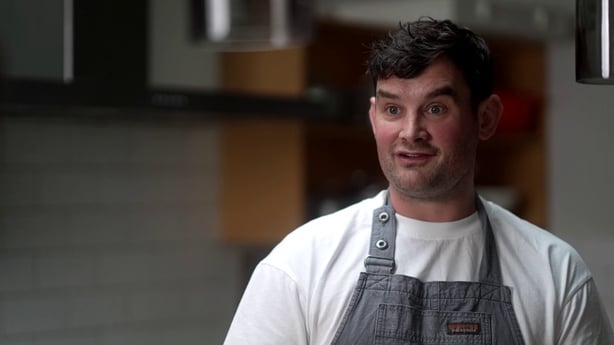
It's an exciting time, the beginning of a journey that for so many others has come to an abrupt end in the last year.
But what’s behind the closures? JP McMahon is a restauranteur chef and author, running Cava Bodega and Michelin-starred Aniar in Galway. He told Prime Time that the industry is currently battling on multiple fronts.
"I think we're in a perfect storm due to a number of events, Covid being the main one. The war in the Ukraine was another big one for food costs. I think both of them principally contributed to the industry being very shook up in terms of people leaving the industry to go to other places of employment," Mr McMahon said.
He says a rise in costs like wages, PRSI contributions and sick days has changed the economics of the industry, making margins tighter.
"If there wasn't, all of those things, I think things might be manageable. But when you have five out of five, it becomes very, very difficult," the Galway-based chef said.
JP believes that the economics that chefs are taught in college and have guided pricing for decades are now being confounded, saying that the general rule was that out of the money that comes into the restaurant, 30% goes to wages, 30% is rent and energy, 30% on food and drink, ideally leaving the restaurant with 10% profit. These days, that 10% is simply unrealistic.
"It has got to the point now, where you could be doing two or three percent and you need everything to be lined up to get that two or three percent," he said.
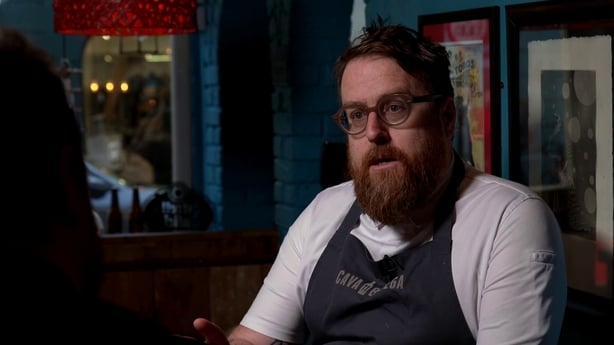
It’s a situation that leaves many restaurants with little choice but to increase their prices, but it’s a high wire act between staying in the black and pushing customers away.
Gillian Nelis, editor of Food & Wine magazine, believes that high prices may just become a part of eating out.
"Ultimately maybe that's just a mindset change that we're going to have to have. That if we want to have a thriving independent restaurant sector, then this is what it's going to cost to run that in this high-cost economy. That’s something I think consumers will have to grapple with a little bit," Ms Nelis said.
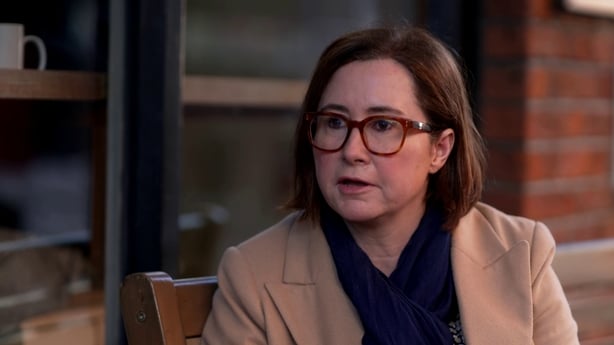
In many ways, it should be a golden era for Ireland’s restaurant scene. Irish chefs, food producers and restaurants are winning acclaim the world over.
But restaurants are still closing. Between now and October 2025, the Restaurants Association of Ireland (RAI) projects more than a thousand restaurants will close.
In a survey of its members earlier this year, 75% of respondents said they would have to strongly consider closing for good if the current VAT rate wasn’t cut.
The VAT rate applied to hospitality and tourism had been reduced to 9% during Covid but pubs, cafés and restaurants alike have felt the pain since it returned to 13.5% in August of last year.
And those who anticipated some help in this year’s budget were left bitterly disappointed, taking to the streets on 15 October to air their frustration with the Government, with a focus on VAT being returned to 9%.
Chief Economist at the Institute of International and European Affairs Dan O’Brien told Prime Time that the case for the reduction was never clear to him.
"Consumption taxes, like VAT, are better than taxing people's income. Most of our tax comes from people's personal income. It's better to tax people when they consume than to tax people on what they do with their time and work," said Mr O’Brien.
He also remains unconvinced that there should be any form of state intervention to support restaurants, even with many businesses on their knees.
"Businesses making profits are the absolute cornerstone of our economy. But at the same time, giving taxpayers money to businesses, either to make profits or businesses that are not making profits or making losses has to be an exceptional case," Mr O’Brien said.
One exceptional case, according to Mr O’Brien, was during the Covid pandemic when businesses were forced to close their doors.
"There was then a good case for taxpayers' money to go to businesses. Right now, at a time of full employment, there really is no case to give taxpayers money to one sector of the business community. There are thousands of restaurants. They open and they close all the time. That's the nature of a competitive industry," Mr O’Brien said.
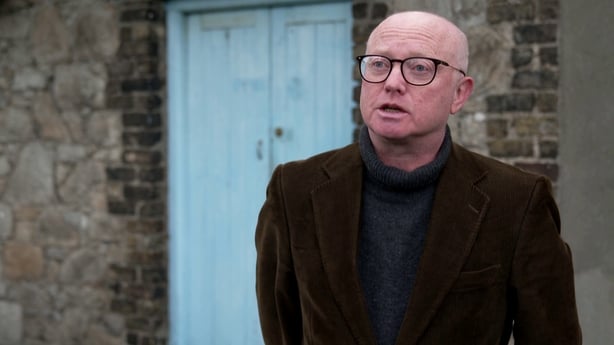
It is true that restaurants have always opened and closed, for myriad reasons, but for some people who’ve closed restaurants during this crisis, this is the end of the road.
Bec Feely established Kale and Coco in 2017, operating as food stalls and as a pop-up before opening a bricks and mortar café in Grangegorman in Dublin’s north inner city in 2019.
After deliberating for several months, Bec closed the café at the end of last year.
Though 2023 was a good year for Kale and Coco, looking into the next 12 months made it clear to her that she couldn’t continue.
"The following year we were going to have minimum wage go up, PRSI go up, additional sick leave, potentially employer-matched pension scheme and then the VAT rate going back up, it was very hard to look at that coming down the line and feel kind of positive about sticking it out for another year," Ms Feely said.
Before Covid, the café did a lot of business catering for offices, which all but disappeared as working from home and hybrid became the norm.
Aged 31, Bec says she’s now at the stage in her life where she needs a stable income.
"It's hard to see your friends that are able to afford to buy a house and do all those kinds of things and feel like you're so far away from that. For a lot of the years I was in business, I was essentially paying myself minimum wage," Ms Feely said.
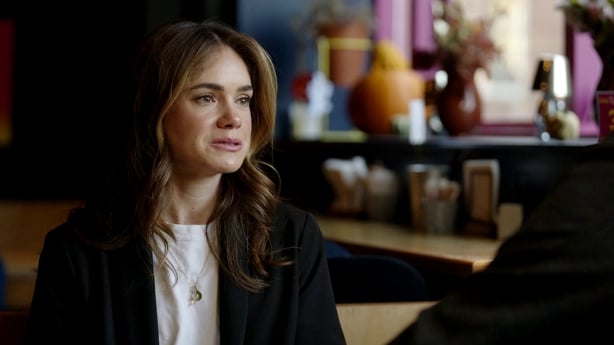
On top of the financial strain, for Bec it was the additional work that’s required just to keep up in 2024. She says responsibilities for restaurant owners today like catering, social media, health and safety, HR, sales make the industry more difficult.
"It’s a lot for one person to manage. And I think we haven't really caught up with the amount of pressure and additional workload that these kinds of businesses are taking on. It's very hard to justify all that stress and all that workload for so little reward."
Conor Wilson and Aaron Heffernan’s report on challenges in the restaurant industry is broadcast on the 31 October edition of Prime Time.





